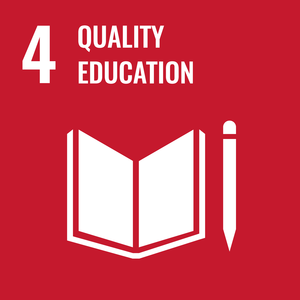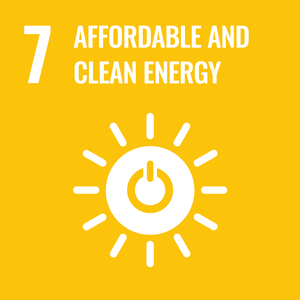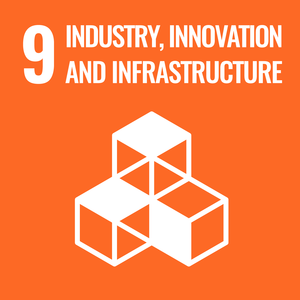About the specialisation
In the last couple of decades we have seen the rapid emergence of new, and sometimes very different, technologies. nanotechnology, artificial intelligence and robotics, biotechnologies, renewable energy, and blockchain all seem somehow different than the technologies we have been used to seeing for the last century. Their emergence has raised analytic and policy challenges.
But no technology exists in isolation. All technologies, even brand new ones, are part of a much larger system comprising social, political and economic actors and structures. The challenge in studying technology is that these things all interact in complex ways. A systemic approach is needed, whether one is an academic, policy maker or stakeholder in an organization such as an NGO.
The governance of technology at all levels – governments, firms, NGOs and private individuals – will be a new challenge. This specialisation provides students with the tools needed to meet that challenge. Students will learn how to understand the impact of new technologies and how to maximise the social and economic benefits while minimising the social costs.
Students will develop an in-depth understanding of the economic fundamentals of innovation and the policy instruments used to foster innovation, the appropriate policy responses to new technologies, and the social impact new technologies have as they diffuse more broadly through society. They will acquire the practical skills needed to operate in this new knowledge economy.
Our specialisation aims to combine theory with practice. Students will benefit from the UNU-MERIT networks of well-recognised policymakers and staff from international organisations such as the World Bank, the European Commission, the Organisation for Economic Cooperation and Development, the World Intellectual Property Organization and the South Centre. We invite experts in the field to bring their experience and show students the application of the theoretical concepts (as seen in class) in the real world. Courses can also include field trips!
SDGs covered:
Related projects
At our institute, we regularly collaborate with international organisations on projects related to the governance of innovation. A few examples:
BIGPROD: Addressing productivity paradox with big data: implications to policy making
Inter-American Development Bank: The impact of scientific diaspora and researchers’ mobility for domestically produced knowledge in Latin America
NWO Merian Fund: GREENFARM – Sustainable production of fresh vegetables in vertical farms (2022-2025)
International Telecommunication Union (ITU): Supporting Indonesia’s G20 Presidency under the theme “Recover Together- Recover Stronger (2022)
European Commission: Evaluation study of the European Framework Programmes for Research and Innovation for a Resilient Europe (2021 –2023)
European Commission: Study on the implementation of cross-cutting issues in Horizon 2020 (2021 – 2022)
Testimonials from alumni
Leopoldo Obregrón
2021-2022 MPP cohort:
“I believe that technology can be a fundamental driver to solve many of the biggest challenges that modern civilisations face. But technological transitions can also generate other challenges or unwanted effects, if improperly managed. I chose this specialisation to better understand how to address these difficult tradeoffs from a policy perspective.
The first course of the programme provides some orientation on the main literature that orient the discussions on innovation policy. The second course provided me with some insights that challenged the assumptions that traditional economic models have on the dynamics of knowledge flow. It also offered me a broad idea of how to perform network analysis and basic skills in R studio. The third course deals with different discussions about the promises and perils of the fourth industrial revolution. Finally, the specialisation ends with a course on how to manage the sustainability transition. There is literature on the circular economy, and several policy discussions on how to foster a greener production system.”
Ayse Kocak
2019-2020 MPP cohort:
“This specialisation has offered me an opportunity to work with real problems, as well as developing practical skills that are in high demand in today’s job market. The workshops, seminars, presentations and debates that I participated in have provided me a stimulating and diverse intellectual environment and have made the learning experience both fun and inspiring. If I could go back in time, I would definitely choose the same specialisation track again. I was quite convinced in my decision to follow Governance of Innovation and I was not disappointed. The specialisation has allowed me to broaden my horizon, become a well-rounded and confident professional, gain a solid academic understanding of economics of innovation and public policy, and develop skills and expertise that would enable me to successfully design and implement evidence-based policy solutions to challenging issues.”
Career Perspectives
Our graduates are currently employed in a wide range of professions in the public, non-profit and private sectors. Examples include:
Economic Analyst, European Commission Joint Research Centre
Impact Catalyser, Sustainable Food Systems
Innovation Advisor, UNICEF
Expert in Inclusive Business, UNDP
Business Process Analyst, A.D.A Software Solutions
Associated expert in Inclusive Business, Endeva (Enterprise Solutions for Development)
Policy Advisor & Economist, Treasury Board Canada / Secrétariat du Conseil du Trésor du Canada
Senior Strategist, Innovation in Action
Expert in Innovation, Centre for Industry Studies
Main teaching staff
Prof. Dr. Robin Cowan
Dr Fabiana Visentin
Dr Rene Wintjens
Kirsten Haaland
Prof. Dr. Rene Kemp
Dr Lili Wang
Learn more about the specialisation
Our course catalogue page on the Maastricht University website
Registration / application information












